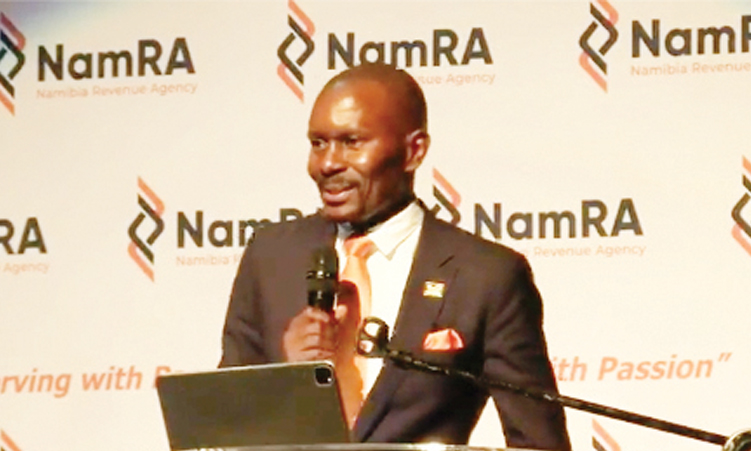THE Namibia Revenue Agency (Namra) has come under fire for urging creatives and those working in the arts sector to fulfill their tax obligations, without considering the complexities within the industry such as freelance work, meagre incomes, and payment delays.
Artists and industry professionals raised their voices at a stakeholder consultation with Namra on Tuesday, where they shed light on these issues, and pointed out that a one-size-fits-all approach to taxation will fail tremendously to consider the unique challenges faced by creatives.
Some pointed out that the industry, which is terribly neglected, is not granted the same incentives as other industries, yet also stressed how the arts can play a major role in contributing to the Treasury.
Sula Kyababa, a local music producer and manager, questioned the practicality of taxing artists when their work is regularly duplicated by fans, resulting in revenue loss. Moreover, the limited number of shows available to artists each year adds to their financial struggles.
Kyababa highlighted the significant costs associated with content production, including the expense of sending master copies to South Africa and subsequent duplication.
The current set-up, he argued, makes it difficult for artists to afford VAT payments.
“We spend so much money producing content, then we send our master copy to South Africa and we pay couriers and when it comes back we pay the 16% and when it gets here, it gets duplicated by the members.
“I wonder how our people can pay VAT with that kind of set-up.
I was hoping they are coming to talk about how we can create a working environment for the creative industry because we are neglected.
“I am actually thinking, should we sit with the arts ministry and Namra to see how we can create work for this sector so we can pay government tax,” he said.
Kyababa also proposed that Namra considers exempting the creative sector from paying taxes temporarily, given the challenges they face.
The complex realities of the industry, such as delayed payments and duplicated content, make it difficult for artists to comply with tax obligations.
Former National Arts Council of Namibia chair Patrick Sam said many artists are willing to contribute their fair share through taxes but highlighted the toxicity within the sector.
He also outlined the numerous bottlenecks that make it difficult for creatives to remain tax-compliant.
Sam emphasised the absence of a grievance mechanism for delayed payments and the implications of waiting for delayed payments.
“If I declare my taxes, there is no grievance mechanism for terms of payments, most artists would either be employed by government, the private sector, and other institutions, and not being paid on time – so what are the tax administrative implications of waiting for six to nine months for a payment?
“I think because the creative sector is unregulated, nonprofessional, and not formal, it makes it very difficult for long-term tax collection. We need an enabling environment,” said Sam.
Namibian entertainer and broadcaster Jossy Joss said there is a lack of synergy around issues of tax policies.
He said the creative industries have been poorly taken care of and not given the same incentives provided to other sectors.
“Would it not be possible for you to motivate a budget incentive for the arts industry – imagine, with Namibia we have N$39 million, and if the biggest chunk of the budget goes to administration, this would not enable an environment where all artists can flourish.”
Inna Gorroh, who spoke on behalf of the commercials industries, said they were hoping that Namra had done research on the dynamics in the industry and were coming to the meeting with incentives, but instead Namra arrived with a “sales pitch”.
“We are thriving but a lot of the people that we work with or are in the industry with do not make enough money to pay taxes, and now you tell them to come pay taxes and then there is corruption on the other side. You have to reconsider your approach,” he said.
Some of comments raised were around piracy, which has severely crippled the sector. Namra was urged to investigate how it can help the sector deal with this, by introducing digital customs agents to deal with issues like piracy.
Some film-makers also feel there are a lot of grey areas around the classification of where some creatives fall, and often they offer diverse services such as entertainment, film-making, and even tourism.
Namra commissioner Sam Shivute said craft centres and markets are popular among tourists, yet lack a lack of proper accounting holds artists back as they continue to make losses.
“We came here not only to encourage you to get your books in order and get someone who can focus just on artists. So, one day you can determine how your sector contributes. There is no way a country will become prosperous without working together,” he said.
He stressed that the creative industry has a lot of potential to become a booming sector and it would be to their benefit to take the free advice given by Namra.
Other concerns raised by some artists was that Namra’s information is not translated into local languages, and Namibian artists, such as the Oviritje artists, do not understand what their obligations are.



Leave a Reply